Ainsley Blattel didn’t always know they wanted to be a wedding planner—in fact, they had no intention of getting into the industry. They worked in the nonprofit world after college but found that they needed to change directions for their mental health. Ainsley says they knew their favorite part of nonprofit work was event planning, but they had no idea how to translate that into a next step.
“A really big passion for me is connecting people and love,” they say. For a little while, they considered starting a business that focused on only LGBTQ+ weddings. Ainsley wasn’t sure if that was a viable business model. So when they found Modern Rebel & Co., an alternative, feminist event planning company with offices in Brooklyn, New York; Austin and Dallas, Texas; and Denver, Colorado; and Washington, D.C., they knew they’d found something special.
“I knew that this was where I wanted to work,” Ainsley says. They fell in love as soon as they read the interview questionnaire, which included questions like: “We love what we do but that doesn’t mean we love every wedding, every marriage, or even the institution of marriage (or the history of it). What marriage tradition are you sick of?”
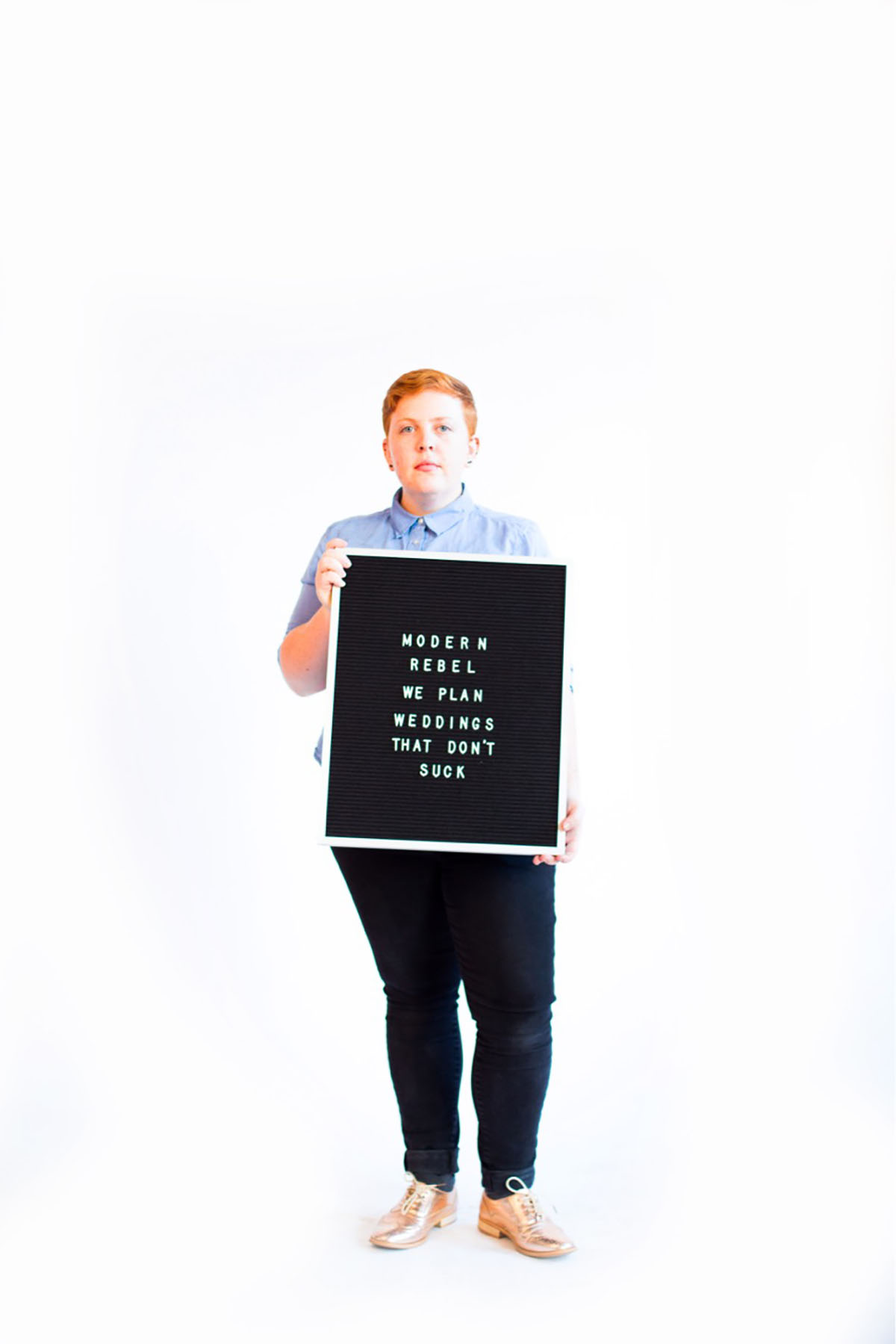
Ainsley knew they wanted to work at a company that was feminist and combined a love of wedding planning with an honest skepticism of the industry’s faults. The wedding industry has historically been problematic for its focus on straight, white, cisgender and nondisabled couples and can be a very heteronormative and binary industry. Ainsley wanted to join Modern Rebel and help couples create the weddings (the company calls them “love parties”) that everyone involved would be proud to be part of.
One of the reasons Ainsley loves working at Modern Rebel, where they are now the VP of Partnerships and Branding and a Lead Planner, is that the company designs their work to be inclusive from the start—so there’s no reason for LGBTQ+ couples to feel othered. The staff all display their pronouns visibly and ask each member of every couple to give their name, pronouns and identify as a “bride, groom or individual A or B.”
Am I going to put myself at risk here by being visible? Am I sacrificing my safety if I say something?
“There’s so much power in language and it’s really up to the couple to pick what’s best for them,” Ainsley explains. As LGBTQ+ people, they say, “a lot of what we get to do is create the words that feel right to us because society doesn’t offer them as options.” In Ainsley’s work as a planner, it’s important not to make assumptions about what people will want, so they always phrase every piece as completely optional: Some couples write their own vows, would you like to do that? Some couples walk down the aisle with a friend or family member, would you want that as part of your day?
The couples Ainsley and the Modern Rebel team get to work with are incredibly creative, which makes sense given that the company specializes in authentic events for contemporary couples. The company worked with one couple who did a standup comedy routine at their wedding and another that hand wrote thank you notes to all their guests and incorporated their guests reading those notes into the event.
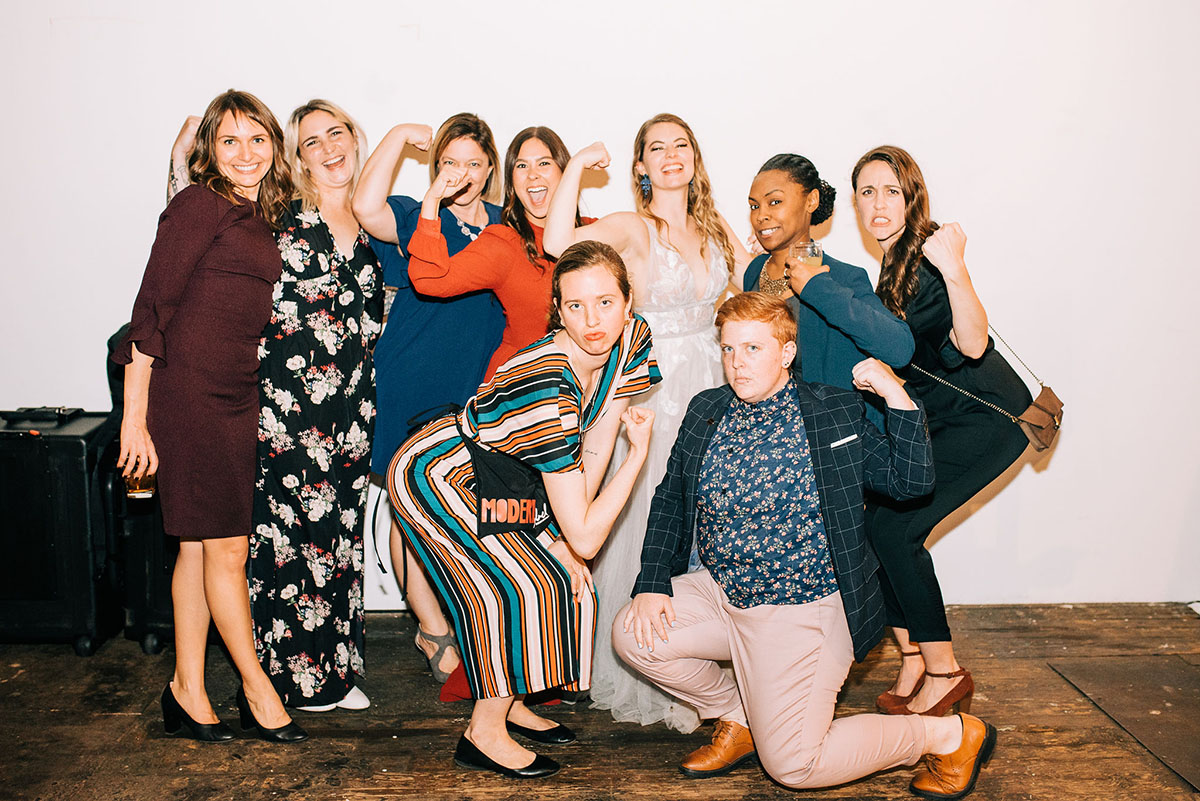
The first time Ainsley worked with a queer couple, they were assisting Modern Rebel Founder and CEO Amy Shackelford. The couple chose to get married in a Housing Works Bookstore Cafe in support of the New York-based organization with a mission of being a healing community of people living with and affected by HIV/AIDS. Modern Rebel always gives 5 percent of profits from every event to a local nonprofit, but this couple put their own twist on that idea and asked every guest to purchase books from the Housing Works Bookstore and donate them to a literacy nonprofit. “Not only did they have a kickass love party—they were unapologetically queer and loud about it,” Ainsley says. There were guests dancing, laughing and perusing the books all at the same time, and it was a powerful sight to see these incredible queer people coming together in love and strength.
They have had that moment many times since beginning their journey as a wedding planner: “I’m doing this for work right now and I’m being fueled by it. I’m inspired by it.”
A lot of what we get to do is create the words that feel right to us because society doesn’t offer them as options.
There are challenges that come with being a nonbinary wedding planner, as there are in most client-facing positions. “I don’t know if there are any other nonbinary wedding planners out there,” Ainsley says honestly. Ainsley, who describes their gender identity as “Peter Pan,” wears a pronoun button to every event and generally dresses in pants and a suit jacket. Despite the button, they’re often still misgendered at events. When that happens, it places Ainsley in the awkward and potentially dangerous situation of choosing whether to come out as nonbinary and potentially have the burden of educating the person who misgendered them. Being out as nonbinary often means that you’re having Gender 101-level conversations with people who have never met someone with they/them pronouns, and these are nuanced and sometimes lengthy conversations to have when you’re also at work.
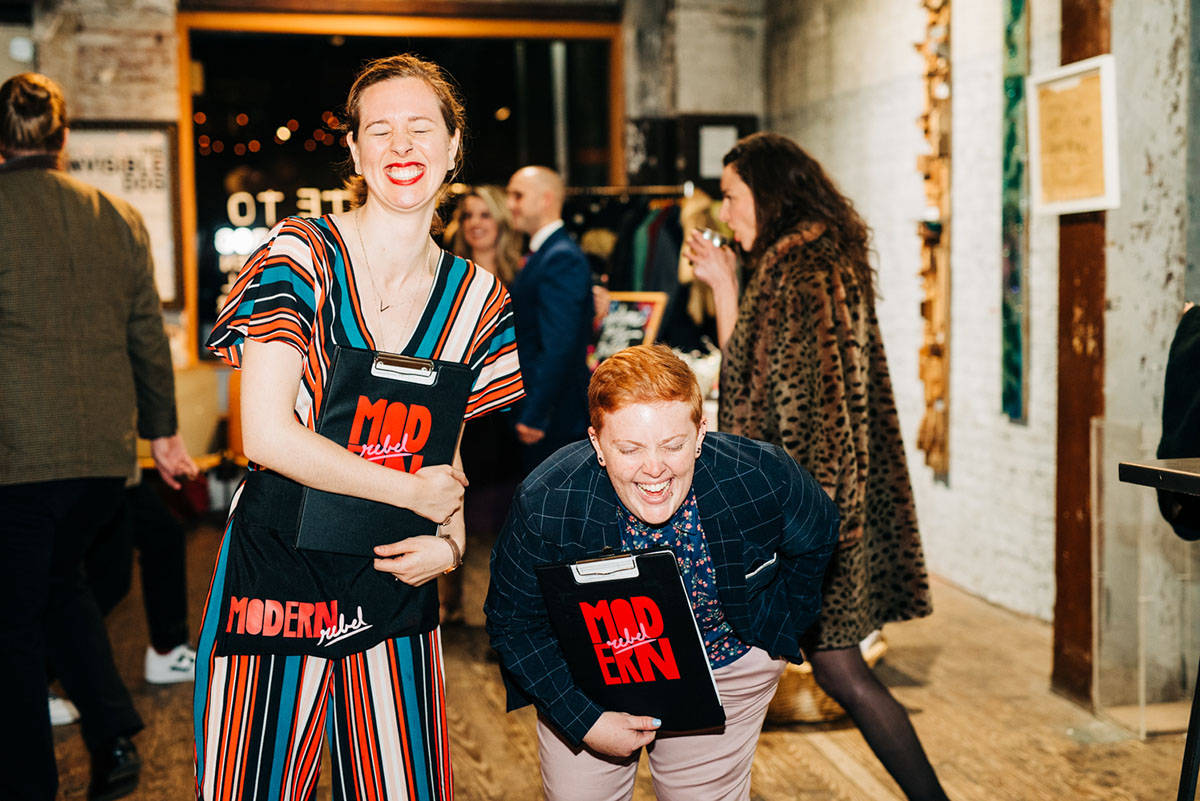
As a planner, Ainsley says, they often literally don’t have time to correct and educate someone who misgenders them at work. It’s a fast-paced job and in the moments after a guest misgenders them, they need to go and check with the caterer to see if desserts will be coming out on time. And they always wonder, “Am I going to put myself at risk here by being visible? Am I sacrificing my safety if I say something?” When it’s coming from other vendors—particularly sexist and misogynistic jokes—Ainsley says they shut it down immediately and professionally. It’s their biggest role to be a couple’s advocate so that they can celebrate the way they want to, which means making sure the event is safe and comfortable for the couple and all guests.
The couples Ainsley works with are very appreciative of the expertise and compassion they bring as an event planner. “I have definitely found with my queer couples that when they work with me, it feels a touch further,” they explain. Although every LGBTQ+ person is an individual and comes from a different perspective (particularly for multiply marginalized people), queer couples get to have a deeper experience in the shared experience of working with someone who knows how heteronormative and binary the wedding world can be.
“They know that someone has been with them throughout the process that understands their experience,” Ainsley says. “When people feel seen and valued, that goes a long way.” Working on love parties for couples is more than just a job to them, it’s a source of joy. They hope their work inspires even one nonbinary person to join the wedding industry and create a movement of powerful change so that everyone feels safe, included and loved.
Fin Leary
1 Comment
Leave a Reply
You must be logged in to post a comment.
MOST VIEWED STORIES
- Your 2026 Wedding Planning Playbook: Decoded from the Year’s Trending Google Searches
- Supreme Court Declines to Hear Marriage Equality Case
- From Swipe to Soulmates: How Daniel & Michael Found Love After a Life-Changing Spinal Cord Injury
- Brighten Your Smile: 5 Teeth Whitening Options for Your Engagement Photos and Wedding Day
- Romantic Outdoor Rome Wedding with Lilac Florals and a Lego Ritual



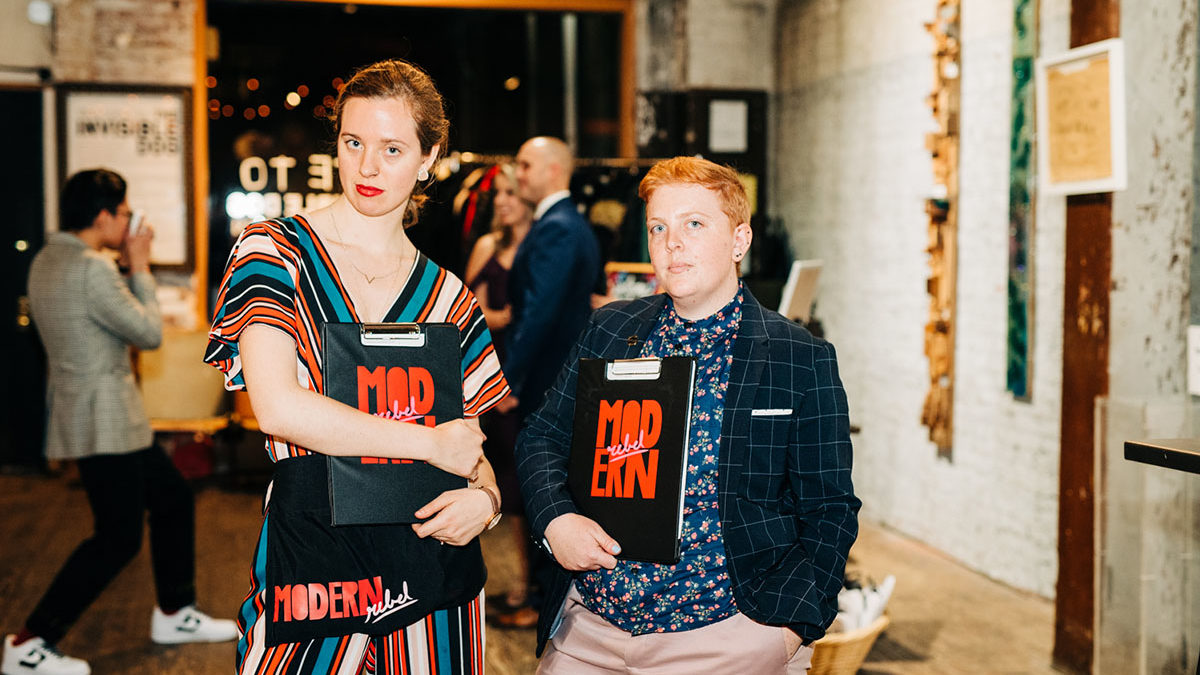

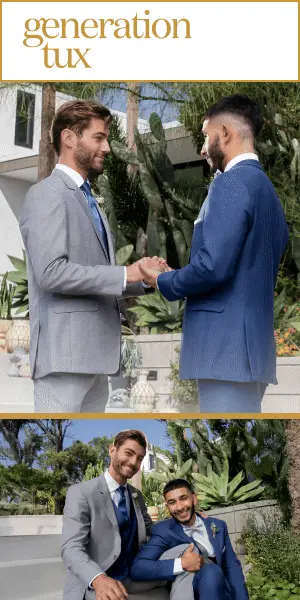








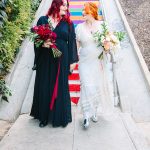










I want to steal that sign and change it for my business: I officiate weddings that don’t suck. Ha!! Good going.